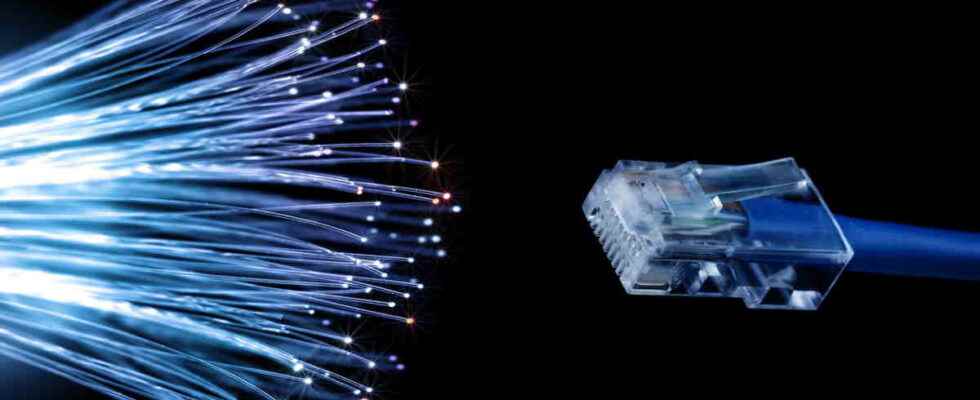Will the French people located in the white zone soon have an enforceable right allowing them to finally access the most common digital services? On Wednesday December 14, during the Vœux de l’Arcep, the regulatory authority for the telecoms sector, Jean-Noël Barrot, Minister Delegate in charge of the digital transition and telecommunications, spoke of the creation of “a right to the very highest throughput for everyone at an affordable price.”
All French people, whether located in towns, suburban areas, rural areas or in the mountains, should thus have the possibility of accessing a very high speed offer. This universal service will be accompanied by a guaranteed speed that the minister plans to set at 30 Mb / s. “This ambition is unique in Europe and will allow France to be the first European digital power”, he enthused. .
In preparation, a draft decree will set the framework for this new right. The Minister is already planning to set up a communication campaign to inform the French about alternative offers to ADSL and fiber, such as fixed 4G, THD radio or satellite connectivity, as well as financial aid from the state. This campaign should be based on the tools developed by Arcep such as “My internet connection”.
Plan France very high speed and New Deal mobile
This announcement comes as the objective of the very high speed France plan is coming to an end. Initiated in the spring of 2013, it aims to cover the entire territory in very high speed, by 2022. Objective achieved? In any case, the deployment of optical fiber continues at a steady pace, with 1.1 million new FttH lines during the third quarter of 2022 according to the latest count from Arcep. 35.9 million premises are now eligible for wired very high speed, i.e. more than four out of five premises.
As for mobile networks, the mobile New Deal seems to have produced its effects. Jean-Noël Barrot recalled that this program, which aims in particular to generalize 4G, has covered 93% of the territory in five years, compared to 45% in 2018. “Thousands of white areas have been erased in this way.”
Accelerating the deployment of very high speed offers is all the more essential as it occurs in the context of exit from the copper network. The incumbent operator, Orange, has announced its national commercial closure in 2026, signaling the scheduled end of the Switched Telephone Network (RTC) and ADSL.
“Worrying slowdowns” in the deployment of fiber
The transitional phase that is beginning must, for this, complete the deployment of the fibre. President of Arcep, Laure de La Raudière warned: “we must be able to count on a well-built and well-operated fiber network to allow and succeed in replacing the copper network with this new infrastructure.”
While the overall volume of deployments remains high, she notes that they are slowing “worryingly in less dense private initiative areas and in very dense areas.” Clearly, “we cannot want to close the copper network and stop the deployment of fiber in the AMII zone (Call for expression of investment intention, NDR) or in very dense areas.” (read: FttH: Brive no longer wants Orange)
It is also a question of responding to the requests of the French. For Laure de La Raudière, the Covid crisis had “the effect of an electric shock on the collective awareness of the importance of digital technology in the functioning and resilience of our society from the health crisis to the place of digital in our society.
Health, telecommuting, home support, education, access to culture or leisure… the French used all these services massively during periods of confinement, she recalled. A generalization of digital uses which also raises the level of requirements of our fellow citizens in terms of connectivity, both fixed and mobile.
